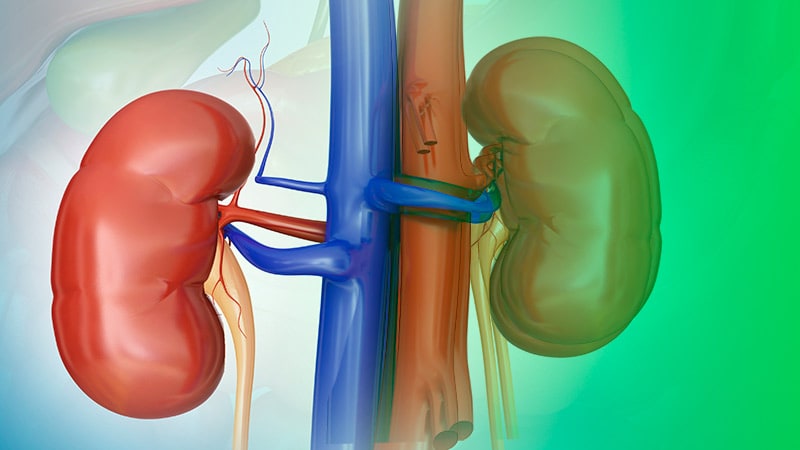Renal Denervation for Resistant Hypertension: Approvals, Systems, and Patient Selection
Core Concepts
Renal denervation offers a new therapeutic approach for resistant hypertension, showing promising results in reducing blood pressure.
Abstract
FDA approved Paradise and Symplicity Spyral systems for renal denervation.
Both systems aim to reduce blood pressure in patients with uncontrolled hypertension.
Paradise system showed significant blood pressure reductions in trials.
Symplicity Spyral system had mixed results in trials.
Both systems use different methods for renal nerve ablation.
Patient selection criteria for renal denervation are crucial.
Reimbursement and patient demand are key factors influencing the procedure's adoption.
Long-term data and safety concerns are still under scrutiny.
Renal Denervation for Hypertension: How Will It Be Used?
Stats
The Paradise system showed significant reductions in blood pressure in the RADIANCE II, RADIANCE-HTN SOLO, and RADIANCE-HTN TRIO trials.
The Symplicity Spyral system had mixed results in the HTN-OFF and SPYRAL HTN-ON trials.
Renal denervation can reduce systolic blood pressure by around 5 to 10 mm Hg.
Quotes
"We are seeing a drop in systolic blood pressure with these systems of around 5 to 10 mm Hg from baseline." - Ajay Kirtane
"The main safety concern has been that the lining of the vessel wall may be damaged, but it turns out this appears to be very rare." - Naomi Fisher
Key Insights Distilled From
by at www.medscape.com 12-11-2023
https://www.medscape.com/viewarticle/renal-denervation-hypertension-how-will-it-be-used-2023a1000v25
Deeper Inquiries
How might reimbursement challenges impact the accessibility of renal denervation for patients with resistant hypertension?
Reimbursement challenges can significantly impact the accessibility of renal denervation for patients with resistant hypertension. The cost of the procedure is likely to be higher than the cost of traditional antihypertensive medications, making it a crucial factor for insurance companies and healthcare systems. If the reimbursement for renal denervation is limited or not approved for a broad range of patients, it could restrict access to the procedure. Patients who are unable to afford the out-of-pocket costs may be excluded from receiving this innovative treatment option. Additionally, the decision on reimbursement may be influenced by factors such as the perceived cost-effectiveness of the procedure compared to traditional treatments, the availability of alternative therapies, and the overall budget constraints of healthcare systems. Ultimately, reimbursement challenges could potentially limit the number of patients who can benefit from renal denervation, especially those with resistant hypertension who have exhausted other treatment options.
Is there a risk of overestimating the benefits of renal denervation compared to traditional antihypertensive medications?
There is a potential risk of overestimating the benefits of renal denervation compared to traditional antihypertensive medications. While renal denervation has shown promising results in reducing blood pressure in patients with resistant hypertension, it is essential to consider the limitations and uncertainties surrounding this new therapeutic approach. The current studies have demonstrated a modest reduction in blood pressure levels, typically around 5 to 10 mm Hg, which may not be significantly higher than what can be achieved with well-established antihypertensive medications. It is crucial to avoid overstating the efficacy of renal denervation and to maintain a balanced perspective on its benefits compared to traditional treatments. Patients and healthcare providers should carefully weigh the potential advantages and risks of renal denervation against other available options to ensure informed decision-making regarding the most suitable treatment for each individual.
How can the long-term safety and efficacy of renal denervation be further evaluated beyond current studies?
To further evaluate the long-term safety and efficacy of renal denervation beyond current studies, several strategies can be implemented.
Longitudinal Follow-up Studies: Conducting extended follow-up studies on patients who have undergone renal denervation to assess the durability of blood pressure reduction and any potential adverse effects over an extended period.
Comparative Effectiveness Research: Comparing the outcomes of renal denervation with those of traditional antihypertensive medications in large-scale comparative effectiveness studies to determine the relative benefits and risks of each treatment approach.
Real-World Data Analysis: Analyzing real-world data from post-marketing registries and healthcare databases to evaluate the outcomes of renal denervation in diverse patient populations and clinical settings.
Meta-Analyses and Systematic Reviews: Performing comprehensive meta-analyses and systematic reviews of existing studies to synthesize the evidence on the safety and efficacy of renal denervation and identify any trends or patterns in the data.
Collaborative Research Initiatives: Collaborating with multiple research institutions and healthcare organizations to pool data, resources, and expertise for conducting large-scale, multi-center studies on renal denervation outcomes.
By employing these approaches, researchers and clinicians can gain a more comprehensive understanding of the long-term effects of renal denervation and make informed decisions about its role in the management of hypertension.
0
